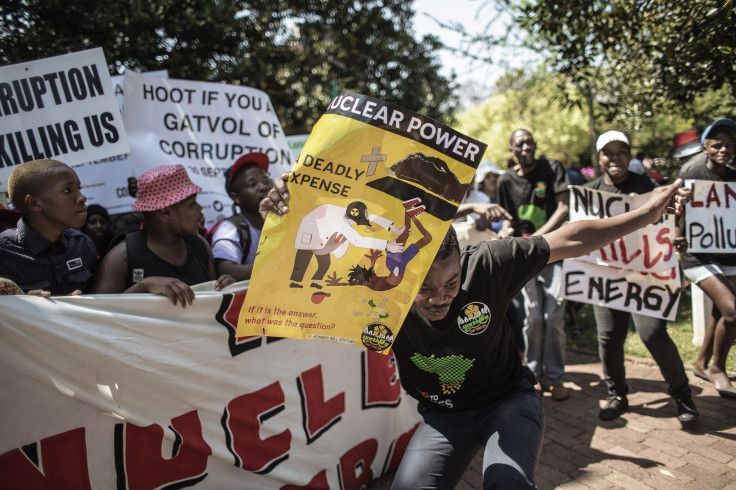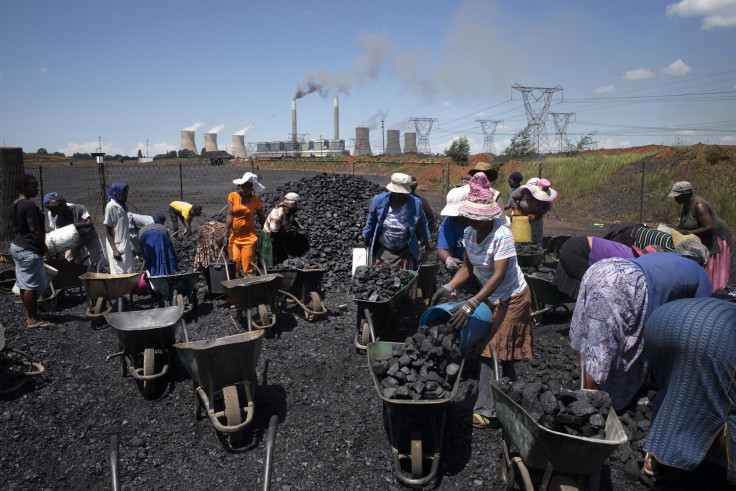South Africa's Catholic Church Rejects Nuclear Procurement Plans, Calls For Referendum

The Roman Catholic Church in South Africa urged the government Tuesday to suspend its nuclear power procurement plans until a referendum on the issue is held. The Justice and Peace Commission for the Southern African Catholic Bishops’ Conference said in a statement the risks of adding nuclear energy to the national grid outweigh any economic benefits, according to South Africa’s Fin24.
"Although the probability of a nuclear accident is relatively low, the consequences of such an accident cause health hazards for thousands of people and render hundreds of kilometers of land uninhabitable and unsuitable for any use for decades,” said Bishop Abel Gabuza, chairperson of the commission. “The commission has therefore appealed to the government to urgently call for a nuclear referendum.”
Gabuza said the South African government, which is struggling with power shortages and an economic crisis, has yet to show evidence that nuclear procurement is affordable to the country and consumers. The Christian-majority nation should instead focus its efforts and financial resources on renewable energy, he added.
“Given the enormity of the risks that the South African government is asking its citizens to bear through the nuclear option, including the enormous safety risks and economic risks, it is only fair that the government directly consults its people on the matter,” Gabuza said in the statement Tuesday. “A referendum is the best instrument for realizing the common good on this important matter.”

The call to halt South Africa’s plans to boost nuclear power comes two days after the Department of Energy announced it had started the process. The department said Sunday it had given the green light to issue a request for proposals from the nuclear industry, which would go to the presidential cabinet for approval, according to South Africa’s Eyewitness News.
Africa’s most industrialized economy narrowly avoided a recession in the third quarter this year, posting 0.7 percent annualized growth compared to the previous quarter, when it shrank 1.3 percent. Gross domestic product is expected to expand 1.4 percent this year, according to the central bank, which would be the slowest pace since the 2009 recession. Meanwhile, credit rating agency Fitch downgraded South Africa to one notch above “junk” status earlier this month.
A major power deficit in South Africa is hampering economic growth. The state-owned power utility Eskom is struggling to stem energy shortages, which is costing private enterprises billions each month in lost production, revenue and waste. President Jacob Zuma’s administration plans to add 9,600 megawatts of nuclear energy to the strained national grid by 2030 to reduce its reliance on coal-fired power. But the price tag for the controversial build of the new plants is up to a whopping $100 billion, according to Bloomberg, which makes nuclear power a controversial option.
The Justice and Peace Commission for the Southern African Catholic Bishops’ Conference said the government should look to Italy as a leading example. In June 2011, the Italian government held a similar referendum to poll its citizens on its plans to generate 25 percent of the country’s electricity from nuclear power by 2030. Well over 90 percent of voters rejected the plans for a return to nuclear power generation, the Guardian reported at the time.
“If our government truly believes that its nuclear decision is serving the best interests of the majority of South Africans, it should not be afraid to emulate the Italian example and open up the matter to a national referendum before the formal bidding process commences,” Gabuza said in the commission’s statement Tuesday, according to Fin24.
© Copyright IBTimes 2025. All rights reserved.





















